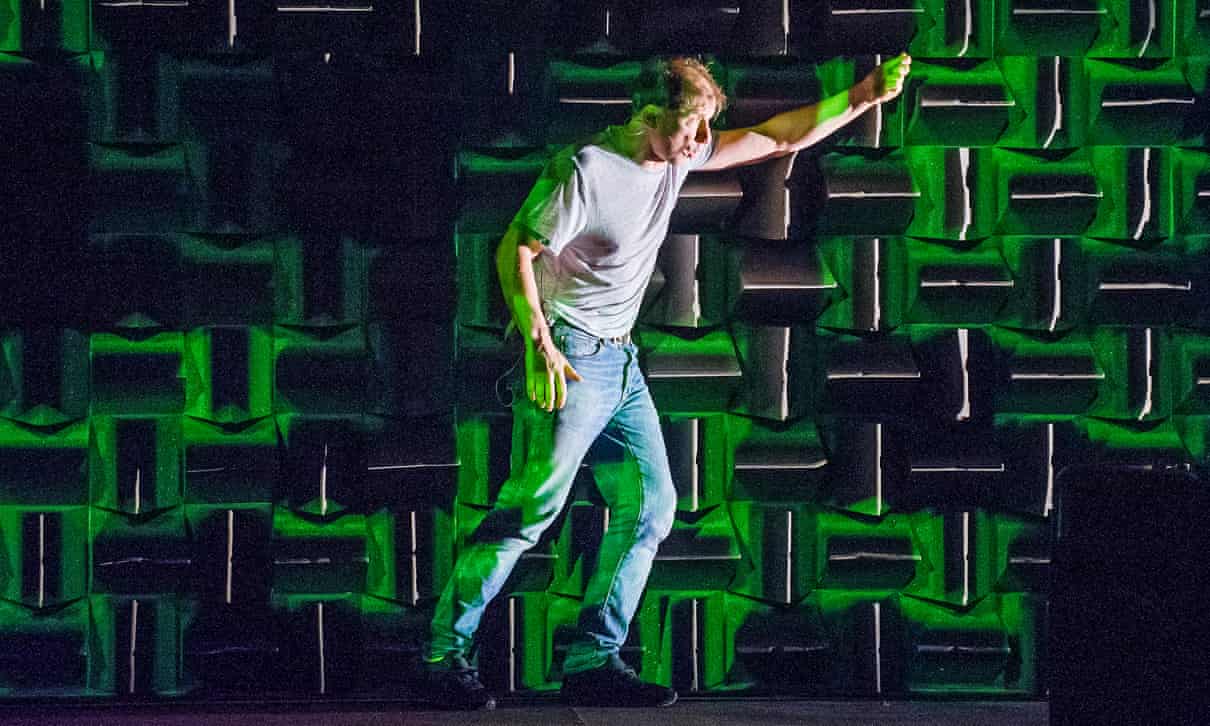“He was always getting into trouble when he was away because he took such chances and his adventures were so wild.” So said former senior photo editor Susan Welchman for National Geographic of writer, explorer and photographer Loren McIntyre. Complicité’s The Encounter describes one such adventure. On an expedition in 1969, McIntyre found himself lost in the remote Javari valley in Brazil. A chance meeting with members of the Mayoruna tribe led to an extraordinary chain of events that resulted in McIntyre living alongside the tribe for two months.
This is an extraordinary piece of theatre that suffers less for being watched on your sofa than many other productions. Simon McBurney‘s script aside, the hero here is the soundscape. The original production, which aired at the Barbican before transferring to the Edinburgh International Festival in 2015, features binaural recording (to give it its Sunday name), essentially meaning sound recorded in 3D. As the audience at the time did, so too are we now entreated to ensure that we watch the performance with headphones to reveal Gareth Fry and Pete Malkin’s complex sound engineering in its full glorious complexity.
This means that the show is given free rein in a multitude of ways. Viewers can experience the delight of being told to shut their eyes, only for it suddenly to be as if McBurney is right behind you with his daughter at your elbow. Careful complex looping helps to create the myriad creeping febrile wonder of a rainforest. The makes for some incredibly gripping drama, and makes The Encounter a wholly different experience. (Try not to read anything that might spoil the surprised before you watch it – it’s compellingly magnetically compulsive viewing, even on a small screen.)
McBurney has created a fascinating story from Petru Popescu’s book, Amazon Beaming. (Popescu met McIntyre years later, heard his tale and raced to publish his story – who wouldn’t?) On one level, it’s a tale of a photographer who loses his camera and nearly loses his sneakers in the middle of the rainforest. On another, it’s an exploration of so-called civilisation. Who decides what progress is? Who benefits from the endless quest for oil? Who has most to gain when people and technology collide?
On another level altogether, the audience are teased into asking what time is. Who does it exist for? Do we need it? No wonder the Mayorunas steal McIntyre’s wristwatch. When nature dictates a pattern of life, shouldn’t we listen? “We remain still in time”, the chief of the tribe insists. McIntyre grapples to understand what he means. But as the weeks roll by and many of us become increasingly familiar with the soporific routine of staying home, this question is eerily resonant. Is time only a construct to help us easily (or uneasily) co-exist more comfortably? Is it just “a possession for us”, as McBurney suggests?
The story reaches a euphoric crescendo with the frogs, with fire, with a joyous abandoned burning, spectacular lights and rock guitars. It’s a lament to all that’s bad in the world. McBurney’s struts and frets and rampages with a passionate certainty that there is a better way than this greedy, lazy, consumerist society we’ve created.
But maybe stories can also help us find a way forward. Complicité have made their production available until the 22nd May to draw attention to the challenges caused by Coronavirus for the Kuikuro tribe and other indigenous peoples in the Amazon. Find out more from filmmaker Takumã Kuikuro here. “Some of us are friends,” says the tribe’s chief. A pointed and pertinent message in these times when being kind feels like the least we can do.
The Encounter is available to stream here until the 25th May
